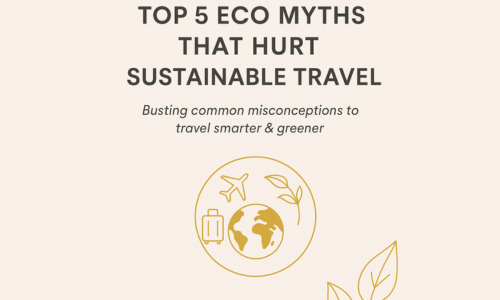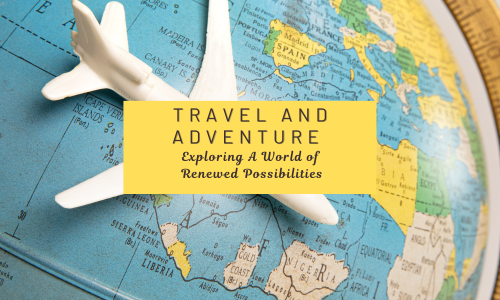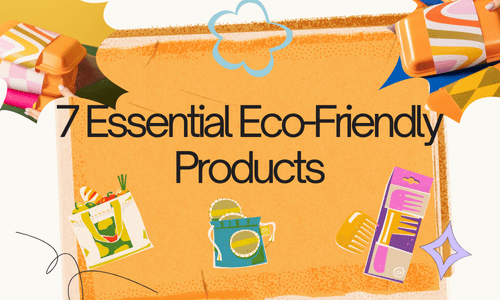This site may contain links to affiliate websites, and I may earn a commission for any purchases made through those links at no additional cost to you.

🌍 Top 5 Eco Myths That Are Hurting Sustainable Travel — Not Helping It
🛫 Let’s bust them wide open.
Sustainable travel is growing — but so are the myths.
Let’s clear the air, debunk some popular “green” claims, and shift to what really works. 👇
💣 Myth #1: “Flying is always the worst option.”
✈️ Not always. A full long-haul flight may have a lower carbon footprint per person than a solo road trip in a gas-guzzler.
✅ Do this instead: Book direct flights, fly economy, and offset your emissions via credible programs.
♻️ Myth #2: “If it says ‘eco,’ it must be good.”
❌ Nope. “Eco” and “green” are unregulated marketing terms.
✅ Do this instead: Look for third-party certifications like Green Key, EarthCheck, or LEED.
🧳 Myth #3: “Packing light doesn’t make a difference.”
💼 Every kilo counts. Heavier planes = more fuel burned.
✅ Do this instead: Pack smarter, choose multi-use items, and skip the “just in case” extras.
🛏️ Myth #4: “All sustainable accommodations are expensive.”
⚠️ Many budget stays use solar, compost, or local materials without the luxury markup.
✅ Do this instead: Research hostels, homestays, and ecolodges — they’re often cheaper and greener.
🍽️ Myth #5: “Vegan = always sustainable.”
🥑 Air-freighted produce and monocrops (like almonds or soy) can offset vegan gains.
✅ Do this instead: Choose local, seasonal, and organic whenever possible.
🌱 Bottom line?
Being an eco-conscious traveler isn’t about being perfect — it’s about being informed.
Awareness beats aesthetics every time.
👍 Like if you learned something new.
💬 Comment below: Which of these myths surprised you most?




